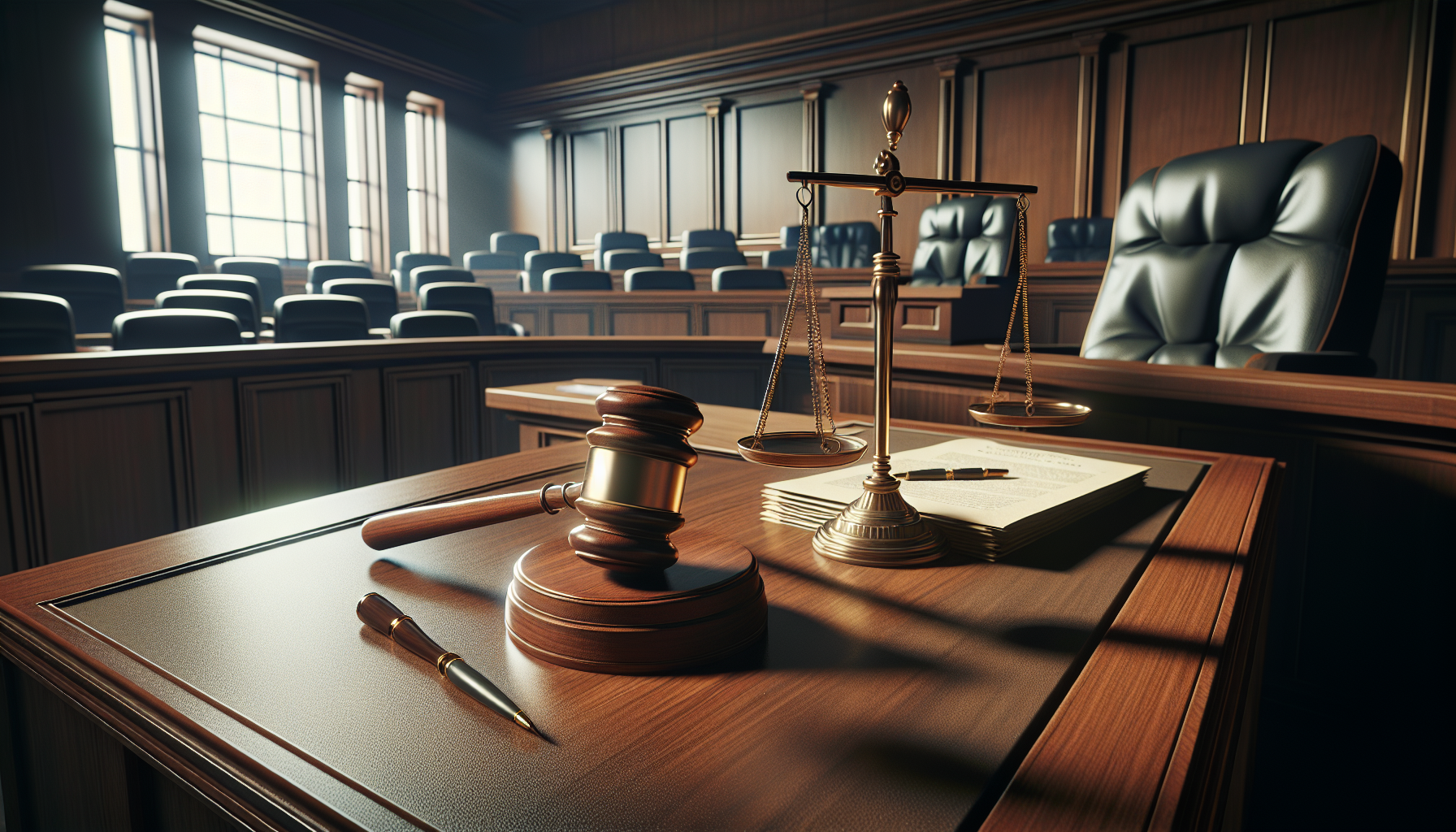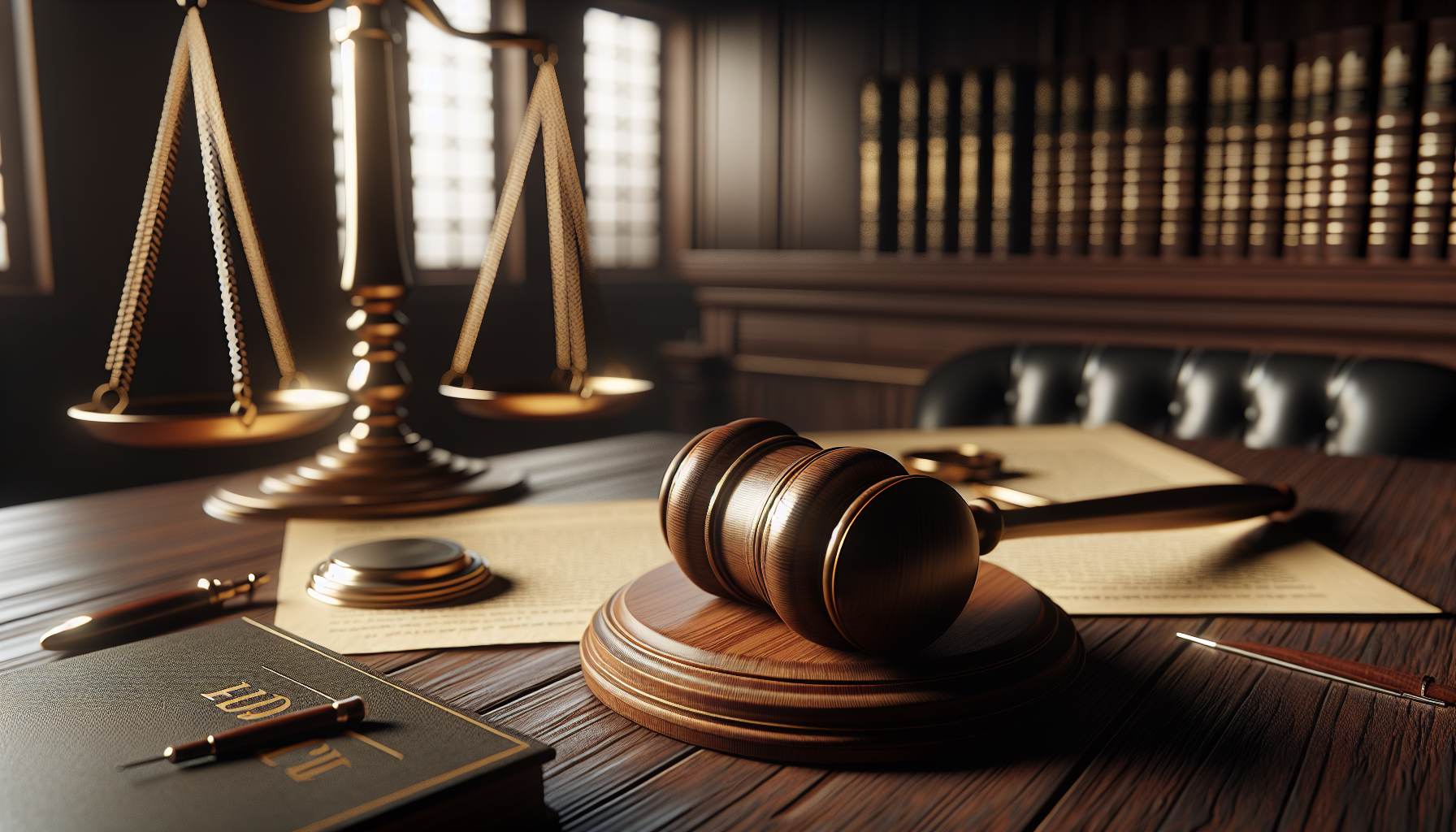
Navigating the complexities of a debt collection lawsuit can often feel overwhelming, similar to finding one’s way through a maze without any guidance, yet understanding debtor defense strategies is crucial in emerging unscathed from such creditor legal action. In situations where a financial dispute cannot be resolved amicably, creditors may proceed to initiate legal action, signaling the onset of a detailed debt litigation process.
The beginning of this legal confrontation is marked by the service of a summons, which serves as a stark notification to the debtor that a debt recovery lawsuit is imminent.
It is essential for debtors to fully understand the steps required to construct an effective defense strategy.
Recognizing the strict deadlines for responding is critical to prevent any default judgments against them. Familiarity with each stage of the litigation process, starting with the initial complaint and moving through the crucial discovery phase, is essential for a successful outcome in a credit lawsuit.
Click here to learn more about: file7file13.com
Understanding Credit Lawsuits
In the intricate process of a debt recovery lawsuit, where every action is significant, debtors often find themselves in the formidable grip of the legal system, rendering debt enforcement proceedings both a necessary and challenging endeavor for creditors seeking restitution. At this critical point, the creditor, equipped with legal documents, initiates court proceedings to assert their claim.
This transition from gentle reminders to a formal lawsuit serves as an urgent signal for debtors of the seriousness of their predicament.
Legal representatives of creditors diligently compile evidence to support the lawsuit, ensuring that their pursuit to recover the debt is fortified with thorough documentation and indisputable facts.
They must align their evidence with applicable state laws and the terms of the lending agreement to meet the demands of judicial examination. On the other side, debtors must rapidly engage legal counsel or educate themselves about the complexities of the legal system to mount an effective defense. The relationship between creditor and debtor can sometimes lead to the exploration of debt settlement options, ultimately steering both parties away from the costs and complexities inherent in bankruptcy litigation.

Navigating Debt Recovery Procedures
Article Section Update: Amidst the increased incidence of bad debt litigation, it is essential for creditors to exercise their rights with utmost care to ensure ethical and legal compliance during the debt collection process. When creditors turn over delinquent accounts to collection agencies, the possibility of a debt recovery lawsuit becomes a real and pressing concern, creating a challenging situation for any debtor.
To effectively manage legal action initiated for debt collection, it is crucial for a debtor to recognize the importance of swift action.
Responding to legal notices served by the court in a timely manner is critical; failure to do so could result in a default judgment that would benefit the creditor.
A debtor must not only acknowledge receipt of the summons promptly but also craft a strategic response. This may involve challenging the validity of the claim if there are grounds to do so. In mounting a creditor lawsuit defense strategy, the debtor should take a proactive stance, understanding the importance of being well-versed in debtors’ rights to effectively navigate and contest the often aggressive tactics employed in legal debt collection.
Key Considerations in Debt Litigation
- Statistically, a significant percentage of default judgments occur due to debtors not responding to court notices in time.
- Understanding debtor rights can significantly impact the outcome of a debt collection lawsuit.
- Proactive legal defense strategies can include disputing the debt’s validity or negotiating for a settlement.
- The Fair Debt Collection Practices Act (FDCPA) provides guidelines that collection agencies must follow to ensure ethical debt collection practices.
Resolving Financial Disputes Amicably
At the heart of every financial conflict lies the opportunity for dialogue and understanding, which forms the foundation for amicable dispute resolution, particularly evident in the intricate debt claim process where parties seek common ground. Rather than plunging into the contentious process of a debt recovery lawsuit, parties are better served by seeking the calmer seas of negotiation to find common ground.
Engaging in honest communication is a critical step for breaking down barriers and illuminating the complexities of the issue at hand.
It all starts with a willingness to listen, which paves the way for structured negotiation, preferably outside the courtroom.
In the spirit of collaborative problem-solving, it is vital for both sides to articulate their concerns and goals openly. Such clarity is essential when navigating the legal aspects of debt relief, where mutual understanding can lead to agreements that satisfy everyone involved.
To bypass the adversarial nature often associated with these disputes, it is recommended to explore alternative resolution strategies. These may include mediation options in the debt claim process, aiming to reach an amicable settlement without resorting to protracted legal action.
Strategies for Debtor Defense
Embarking on the journey through the labyrinth of debtor defense requires a grasp of the legal bedrock upon which financial disputes are adjudicated, particularly the intricacies of debt resolution law that govern the outcomes of such contentious matters. For those embroiled in such conflicts, establishing an intimate understanding of debt resolution law is crucial in mounting a robust defense.
The process begins with dissecting the creditor’s assertions and meticulously examining every shred of evidence presented.
Key to this defense strategy is the identification of any discrepancies in the stated amounts, or irregularities that may call into question the legitimacy of the debt itself.
This strategic evaluation often reveals paths to challenge the very foundation of the creditor’s claim, which can strengthen the defense before insolvency proceedings or a debt recovery lawsuit become a reality.
In certain scenarios, debt arbitration emerges as a strategic alternative to traditional courtroom litigation.
It offers confidentiality and potential cost savings for both parties. Defendants can employ judgment enforcement defenses. These include insolvency proceedings that can ultimately lead to legal debt dispute resolution through judgment enforcement or debt arbitration in financial claims court.
Key Aspects of Debtor Defense Strategies
- Legal knowledge is essential for effective debt dispute resolution.
- Examining evidence and identifying discrepancies can undermine creditor claims.
- Debt arbitration may offer a private and cost-effective alternative to court litigation.
- Insolvency proceedings can be a viable defense tactic in debt resolution cases.
What Are Debtors Rights
In the crucible of a debt recovery lawsuit, the shield of rights that debtors wield is nuanced and formidable, serving as a strong defense against unjust creditor demands, often leading to complex debt dispute resolution that can reshape the landscape of credit management litigation. Within the realm of credit management litigation, a debtor’s right to due process is critically important.
This right ensures that individuals are not blindsided by legal actions since they must receive proper notification before being required to appear in court.
When litigation finance enters the arena, it highlights the importance of procedural accuracy in defending against a debt recovery lawsuit.
Debtors have the right to demand thorough validation of the debt in question, which can expose errors or inconsistencies made by the creditor. The representation of an attorney can significantly equalize the contest, providing debtors with the expertise needed to effectively navigate the complex legal system.
Understanding the statute of limitations is crucial; it is like drawing a line in the sand
Creditors Legal Recourse Explained
Amid the vast array of fiscal conflicts, creditors have several legal methods for debt recovery, such as initiating foreclosure litigation to reclaim properties from delinquent mortgage debtors. Initially, creditors should reach out to debtors to propose a repayment plan, which often prevents the need for a lawsuit.
During this phase, amicable negotiations can help avoid progressing to a full-blown lawsuit over mortgage debt or other financial disagreements.
If discussions break down, creditors may need to take legal action, resulting in a debt recovery lawsuit.
The process starts with the creditor preparing the necessary documentation, including a complaint that is formally served to the debtor. This document is crucial as it requires the debtor to respond within a specified legal timeframe.
When the court convenes, both parties present their arguments. The outcome of this creditor lawsuit defense strategy could be a favorable judgment for the creditor or a requirement for further scrutiny of the debt validation process
Key Points on Debt Recovery Legal Methods
- Foreclosure litigation is a common legal method used by creditors to recover property from those who default on mortgages.
- Repayment plan negotiations can be an effective alternative to litigation, often resolving disputes without the need for a lawsuit.
- A formal complaint served to the debtor marks the initiation of a legal action and sets a legal deadline for the debtor’s response.
- The outcome of a debt recovery lawsuit may result in a judgment in favor of the creditor or a detailed examination of debt validation.
The Debt Settlement Journey
When updating this article section to ensure complete sentences and to make judicious use of the keywords ‘debt litigation steps, debt recovery lawsuit, creditor lawsuit defense strategy’, the revised section could read:
Embarking on the path to financial freedom, a debtor may find themselves entangled in the complexities of legal credit repair procedures, confronting the challenge of a debt recovery lawsuit; meanwhile, a creditor initiating legal action against a debtor often anticipates a robust debt collection defense, underscoring the necessity for clear debt litigation steps and a sound creditor lawsuit defense strategy. As they navigate through the intricate debt litigation steps, it is vital for them to understand how to construct a solid creditor lawsuit defense strategy.
Insight into the debtor’s rights and obligations is essential, as it sheds light on the path ahead and guides an informed approach toward a resolution.
In the treacherous landscape of legal actions against debtor claims, knowledge serves as a beacon for guidance. Upon being served with legal papers, it is imperative that a debtor immediately seeks legal counsel to discuss potential defenses and strategies for their case, as this initial step can greatly influence the outcome of any debt collection defense or litigation that may follow.
Approaches to Debt Enforcement
In the arena of fiscal litigation, a creditor’s initial approach often consists of a stern yet diplomatic communication aimed at debt conciliation efforts, before escalating to more aggressive measures such as garnishment proceedings to secure payment from a defaulting debtor. This tactic is not merely a courtesy; it serves as a critical precursor to more severe legal actions and signals the creditor’s willingness to find a resolution before resorting to the courts.
Before a creditor embarks on a lawsuit for debt recovery, it is in their best interest to pursue amicable solutions that might prevent the need for a contentious legal confrontation.
As the situation escalates to formal legal action, each step must be carefully planned.
The decision to file a lawsuit should be regarded as part of a comprehensive strategy, one that may include concurrent methods such as garnishment proceedings or seizing assets. It is important to note that the mere act of initiating legal proceedings can sometimes bring a debtor to the negotiation table, with the looming prospect of garnishment proceedings compelling a more cooperative approach to debt settlement.

Get a Free Bankruptcy Case Evaluation